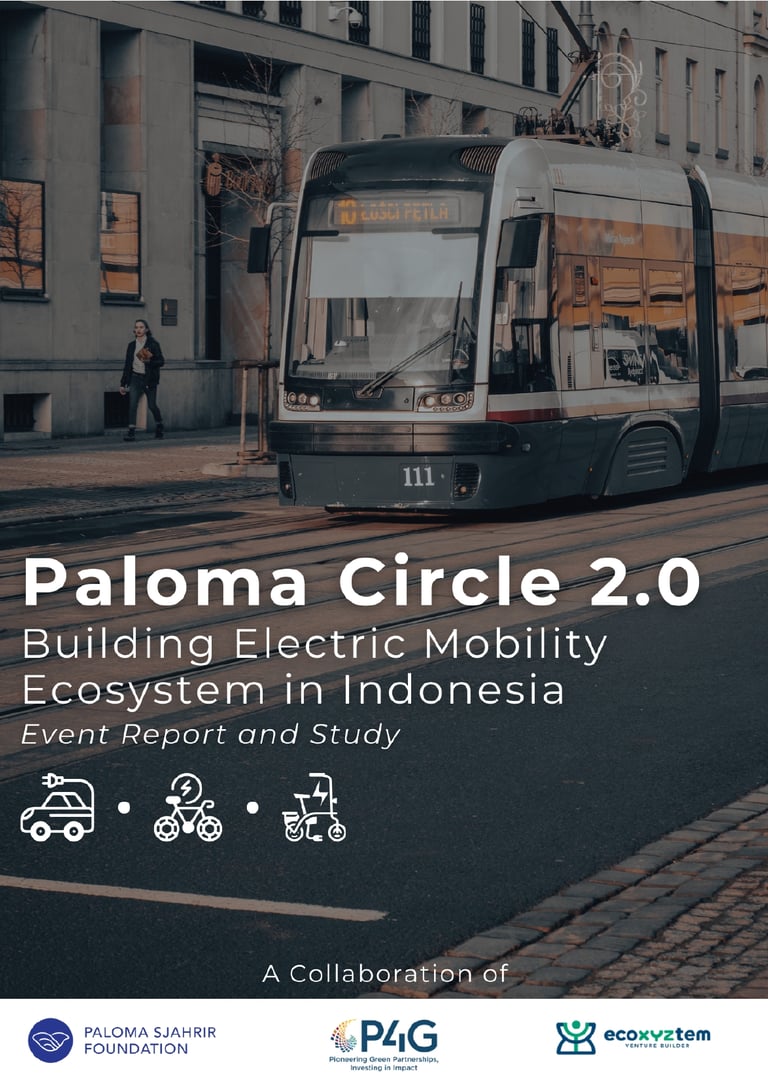Building Electric Mobility Ecosystem in Indonesia
The global landscape of transportation is undergoing a significant transformation, characterized by the rapid rise of the e-mobility industry. At the 26 th UN Climate Change Conference of the Parties (COP26) in October 2021, several nations and leading car manufacturers pledged to phase out fossil fuel–powered vehicles by 2040 to achieve the net-zero emissions target.
RESEARCH PUBLICATIONS
Paloma Sjahrir Foundation
11/1/2023


Building Electric Mobility Ecosystem in Indonesia
The global landscape of transportation is undergoing a significant transformation, characterized by the rapid rise of the e-mobility industry. At the 26 th UN Climate Change Conference of the Parties (COP26) in October 2021, several nations and leading car manufacturers pledged to phase out fossil fuel–powered vehicles by 2040 to achieve the net-zero emissions target. Electric vehicles (EVs), once a niche market, have surged in popularity, reshaping the way we envision sustainable transportation.
Startups play a pivotal role in this transformation, offering innovative solutions to propel the e-mobility sector forward with major startup hubs located in Silicon Valley (USA), Berlin (Germany), Shenzhen (China), Bangalore (India) and other parts of Europe and Asia. This industry's growth trajectory is further underscored by the substantial funding received. In 2020, global EV startups raised a total of approximately $28 billion in funding, marking a significant increase from previous years. One notable example is Rivian, an American EV manufacturer, which secured over $10 billion in funding in 2020, making it one of the largest fundraising rounds in the e-mobility sector. As of 2020, the global EV market has reached a total of 10.2 million electric cars on the road, with annual sales surpassing 3 million units. The electric car market share increased to approximately 4.6% of global car sales in 2020, marking a substantial rise compared to previous years.
Download Research Publication
Ecoxyztem
(PT Greeneration Indonesia)
Address
Eco-S Coworking & Office Space (Climate-Tech Hub)
Sahid Sudirman Residence, Jl. Jenderal Sudirman No.86, RT.10/RW.11, Karet Tengsin, Kecamatan Tanah Abang, Kota Jakarta Pusat, Daerah Khusus Ibukota Jakarta 10220
Registered in
Subscribe our newsletter
©2026 Ecoxyztem. All rights reserved.
